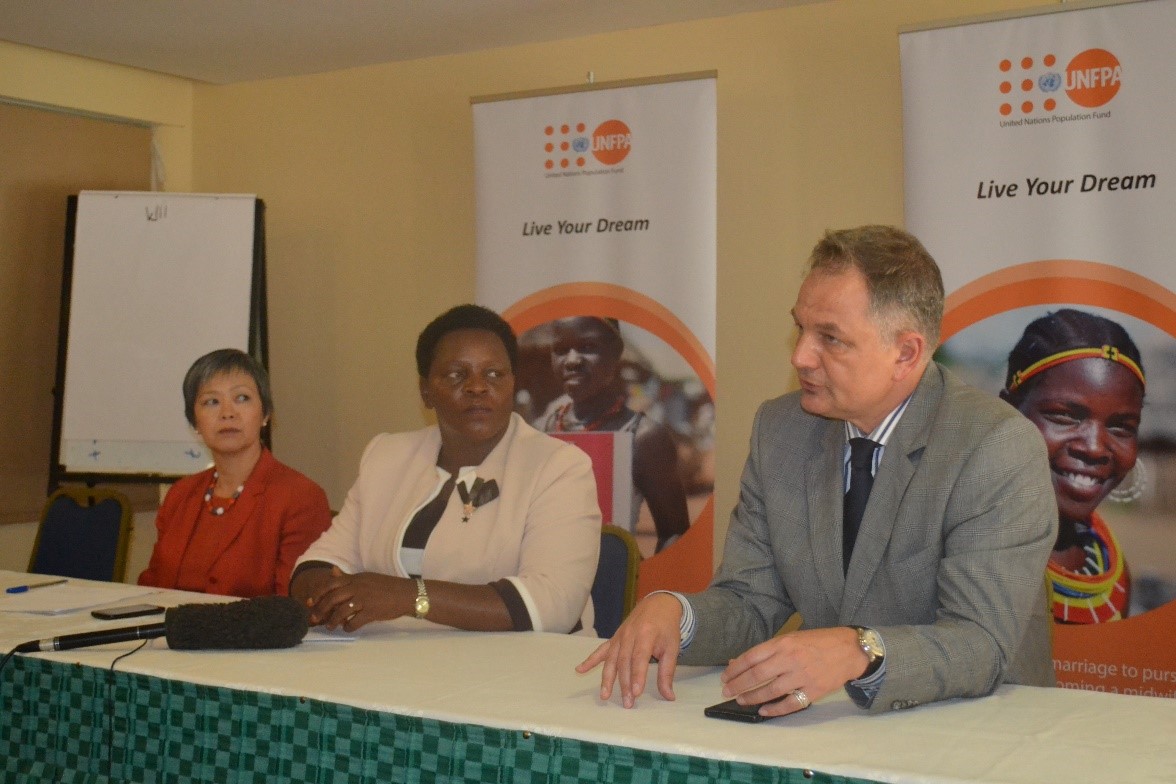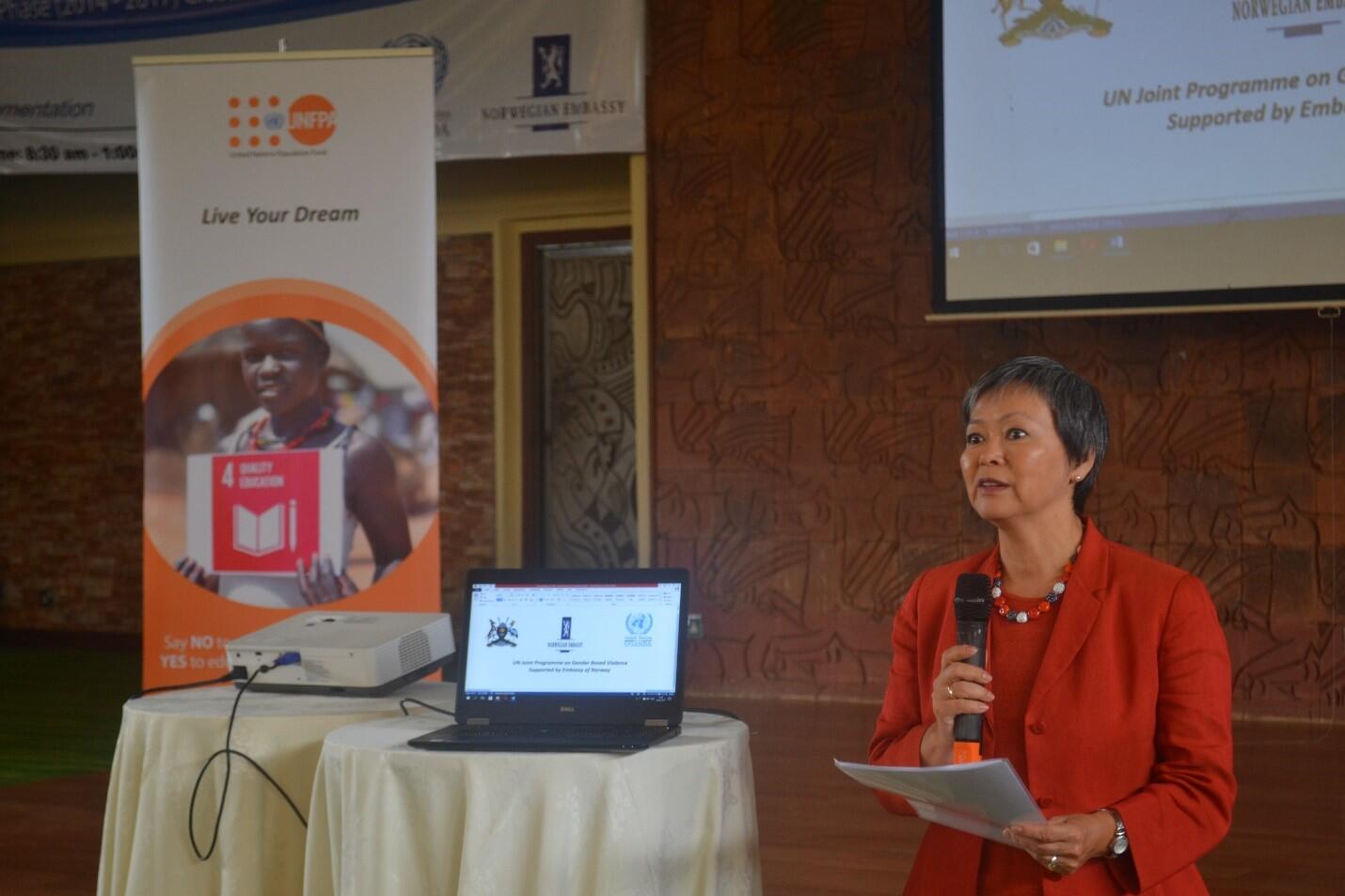Donors of the UN Joint Programme on Gender Based Violence have expressed contentment in the impact the programme has made in the last eight years, with renewed commitment to continue strengthening efforts to combat violence against women and initiate new ways of involving men as agents of change.
“The Norwegian Embassy in Kampala is proud to have supported the Joint Programme and is proud to see the fruits of eight years of work. The results are many and the impact is great. Our appreciation goes to all ministries, agencies, organizations and persons involved,” said Norwegian Ambassador to Uganda, Ms. Susan Eckey.
The ambassador was speaking at a meeting on the closure of the UN Joint Programme on Gender Based Violence (GBV) at Golf Course Hotel in Kampala on September 29.
The meeting attended by officials from the Ministry of Gender, Labour and Social Decelopment and a section of other implementing partners, was to discuss key achievements of the programmes’ bridging phase (2014-2017) and reflect on sustainability of gains made during the implementation of the programme.
In her remarks, the ambassador said she was pleased to know that although the programme, which started in 2008 has come to an end, the impact on the ground is visible, with changed laws, new mechanisms and structures established to prevent and end gender based violence. 
“This programme has changed the lives of many women, girls and families by creating new and sounder dynamics free of GBV, allowing them to become equal partners in their families and communities,” she said.
In his remarks, UNFPA Representative Mr. Alain Sibenaler acknowledged that successes from the joint programme would not have been possible without the generous financial support from the Royal Norwegian Embassy.
“Your Government’s contribution to ensure gender equality in Uganda has been unprecedented and has made a huge difference,” Mr. Sibenaler said.
The Representative also applauded the Ministry of Gender Labour and Social Development and the different UN Agencies (FAO, UNICEF and UN Women) who have been directly involved in the implementation of the Joint Programme to make a difference in the lives of women and girls.
"Today, more girls are going to school, more women have joined the labour force, and more women have access to sexual and reproductive health services, including family planning.
“These as are some of the tangible results we can show out of this programme. The future we want is a world where every woman and girl can live free from discrimination and violence, and enjoy her full human rights and human dignity,” Mr. Sibenaler added.
“As a country looks towards meeting its commitment on the Sustainable Development Goals of achieving gender equality, elimination of GBV is a priority,” said Minister of State (Gender and Culture) Hon. Peace Mutunzo who was also the guest of honor at the occasion.
Story by Evelyn Matsamura Kiapi



